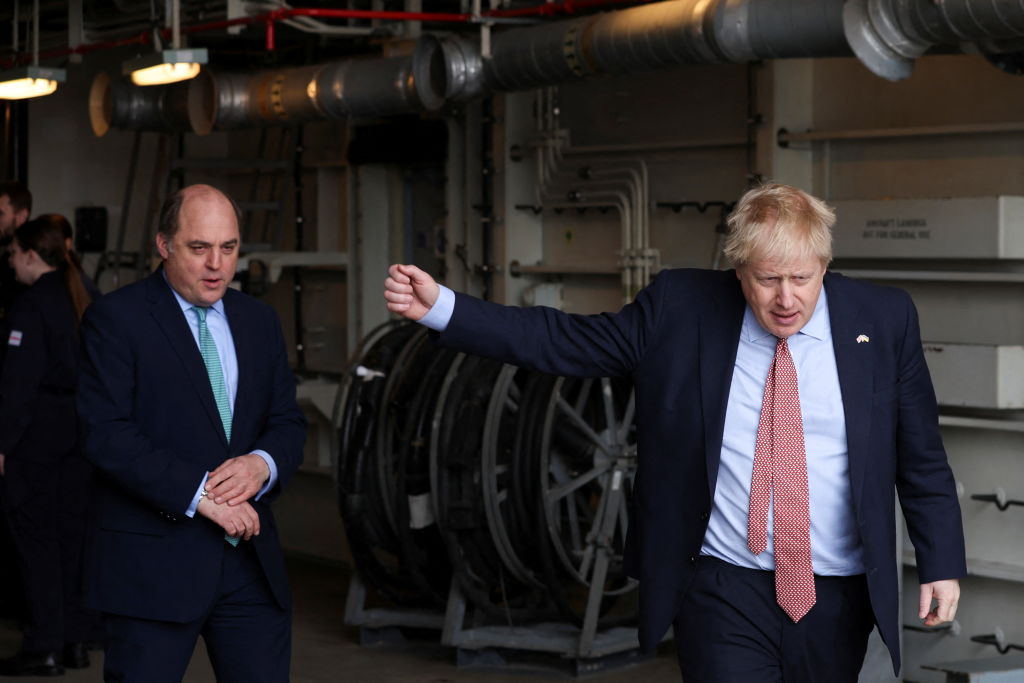As Britain turns its head to China, it must keep hold of strategic strength in Europe

It was an apt anniversary; a year ago last week, the government published the “integrated review”, designed to reshape Britain’s global posture in the aftermath of Brexit.
Along with the previous decisions to merge the Department for International Development into the Foreign Office and increase defence spending by over £16bn over four years, the review marked the biggest shake-up of British foreign policy in a generation.
In light of Russia’s renewed offensive against Ukraine, critics have claimed the review failed to foresee the extent of the threat from Russia; consequently, they argue that the UK should jettison its global interests and refocus on the Euro-Atlantic region.
To make short work of it: the idea that Britain failed to foresee the Russian threat and the claim it is drifting away from its home continent is humbug. Not only did the Integrated Review identify “intensifying geopolitical competition” as the greatest challenge facing the UK, but it also labelled Russia as “the most acute direct threat” to British interests. Although China was identified as a potential threat, it was framed more as a long-term “systemic competitor”.
In terms of geopolitical priorities, the Integrated Review did place greater emphasis on the need for a “tilt” to the Indo-Pacific – a region of rapidly growing economic and geopolitical importance. But it did not overlook the continued geostrategic primacy of the Euro-Atlantic. It even pledged that the UK would remain “the greatest single European contributor to the security of the Euro-Atlantic area to 2030.”
In fact, Russia’s war in Ukraine not only confirms the Integrated Review, but even allows it to reach its full potential. Britain has many allies: Nato is a large defensive alliance which includes Germany, France, Italy and several other large European countries which have persistently failed to pull their weight. In 2014, after Russia annexed Crimea, they agreed to spend 2 per cent of their national output on defence, and 20 per cent of that on military modernisation. Of the 29 Nato allies, only ten meet the first target, and only six meet both.
Russian aggression has once again forced their hand. The decisions taken last month in Poland and Germany to significantly boost defence spending should reduce the pressure placed on the UK. Due to their continental disposition, Poland and Germany will prioritise their land and air forces, enabling Britain to pursue the maritime posture the review prescribed.
Even as it plays a significant role in the Euro-Atlantic, the UK does not need to reprioritise heavy armour. It contributes to Nato by keeping the North Atlantic and other maritime approaches to the alliance open, by extending its compact but lethal nuclear deterrent over the entire alliance, and by stationing troops and fighters in Estonia, Lithuania, Poland and Romania to guard them against Russian aggression. Germany, Poland and other large allies should focus on providing the armoured response forces to link the three more closely together.
This doesn’t mean Britain is off the hook. The renewed Russian assault against Ukraine shows geopolitical competition is intensifying at a dizzying pace. It will have untold geostrategic implications, including, potentially, the start of a new cold war, where nuclear weapons will again play a central role. This new struggle will be more complex than the previous because the leading protagonists – Russia and China – are developing new technologies to offset Nato’s strategic advantages and have, at least in China’s case, an industrial economy which may eventually overtake that of the US.
If Britain is to remain Nato’s leading European power, and the most active European country in the Indo-Pacific, it will need to spend more on defence. But it will need to do so in a way which plays to its maritime strengths as it coordinates with Nato allies. Britain will not only be able to deter threats in Europe, but it will also be able to secure its Indo-Pacific interests.
